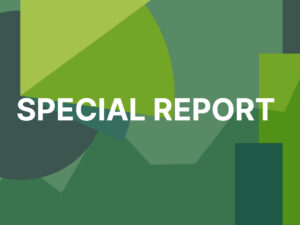IN THIS SURVEY
- Overview
- Access to Investors & Startup Fundraising
- Company Roadmap & Revenue Growth
- Company Valuation
- Human Capital & Distributed Talent
- Methodology
OVERVIEW
LAVCA conducted a Startup Founders Survey to capture how 160+ venture-backed founders are responding to a radically different macroeconomic context in the Latin American tech ecosystem, following a sustained period of significant growth, with a record USD16b in VC investment deployed in 2021, according to LAVCA Data.
Building on LACA’s annual Latin American Startup Directory, LAVCA invited 331 verified startups that raised USD1m+ in third-party capital during 2021 and 1H 2022 to respond to the survey. Founders of 168 companies across 10 countries submitted substantive responses, which are the basis for new aggregate financial and operating benchmarks, with new insights on valuation, revenue growth and workforce composition.
The survey also includes a well-balanced representation of verticals, with 65% of startup respondents operating within fintech, e-commerce, edtech, hrtech, and healthtech, representing USD14.5b in financing from the USD21.1b deployed during 2021 and H1 2022.
While the survey includes perspectives from a mix of seasoned and new entrepreneurs, 52% of respondents self-identified as first-time CEOs of a VC-backed company.
ACCESS TO INVESTORS & STARTUP FUNDRAISING
Early-stage financings continue to dominate VC investment in Latin America. Founders reported that 69% of their financings raised to date had been early-stage, with seed and Series A rounds representing 56% of all disclosed financings. While only 23% of respondents have raised a Series C or beyond, the development of a mature growth equity ecosystem will play an important role in the coming years as early-stage companies return to the market to support their growth trajectories.
Founders are adjusting fundraising expectations to current market conditions. Latin American startups surveyed are relying on well-capitalized balance sheets to navigate the current market adjustments, with 39% of respondent companies not fundraising at the time of this survey. Of those currently on the market, 84% state their fundraising process has taken longer than expected, with seed companies expressing the most challenges.
COMPANY ROADMAP & REVENUE GROWTH
Operational efficiencies have become a key focus for founders. Latin American founders are primarily focused on internal company restructurings and building leaner teams as main levers to extend the company runway, while also renegotiating supplier agreements and reducing sales and marketing expenses. Inorganic growth through business acquisitions was not a core focus of respondents at the time of the survey.
Early-stage ventures command the highest revenue growth. Nearly two-thirds of all Latin American startups surveyed reported 10%+ month-over-month revenue growth, with 40% of companies growing at 20-29.9% MoM and 33% growing at 10-19% MoM. However, revenue growth seems to decrease with company scale; none of the companies with a disclosed valuation over USD300m reported MoM revenue growth over 20%.
COMPANY VALUATION
While company valuation figures remain a highly sensitive topic, 41% of respondents disclosed that their valuation exceeded USD100m at the time of the study.
Early-stage startups command the highest diversity in disclosed valuation. Most seed-stage companies surveyed reported a disclosed valuation of less than USD20m, while early-stage companies reported valuations ranging from under USD20m to over USD1b, with nearly 80% falling under USD300m.
HUMAN CAPITAL & DISTRIBUTED TALENT
Talent search has gone global. Startup founders have dedicated a significant portion of their financing to growing their teams in and out of the region, with the total number of full-time employees highly correlated with the investment stage of the company.
Latin American startups increased their reliability on geographically distributed teams, with the proportion of full-time employees operating outside of Latin America increasing with the financing maturity of the company – 39% of the 106 respondents in this survey employ 20-39% of their full-time employees outside of the region, compared to the 95% of the 222 respondents in LAVCA’s 2018 Inaugural Startup Survey who reported 80% of their full-time employees operating in Latin America.
Hybrid work is here to stay, but only 21% of respondents expect their workforce to increase remote operations, and 39% don’t expect to make any changes to their current policy within the next two years.
Talent search has gone global. Startup founders have dedicated a significant portion of their financing to growing their teams in and out of the region, with the total number of full-time employees highly correlated with the investment stage of the company.
Latin American startups increased their reliability on geographically distributed teams, with the proportion of full-time employees operating outside of Latin America increasing with the financing maturity of the company – 39% of the 106 respondents in this survey employ 20-39% of their full-time employees outside of the region, compared to the 95% of the 222 respondents in LAVCA’s 2018 Inaugural Startup Survey who reported 80% of their full-time employees operating in Latin America.
Hybrid work is here to stay, but only 21% of respondents expect their workforce to increase remote operations, and 39% don’t expect to make any changes to their current policy within the next two years.
LAVCA Members can log in to download the 2023 Startup Founders Survey Excel file.
Non-members can purchase access to the data.
METHODOLOGY
Participating startups were vetted by LAVCA’s Research team across a range of primary and secondary sources. Results are reported in aggregate and include responses from 168 verified startups; participation and individual responses are confidential.
DISCLAIMER
The information contained in this publication has been gathered from sources believed to be reliable, but its accuracy and completeness are not guaranteed. LAVCA shall not be responsible for any inaccuracy unintentionally included in this publication. Readers should consult and rely solely on their own advisers regarding all pertinent information, and legal, and accounting issues. The information, formats, themes, and presentations contained in this publication may not be reproduced, published, shared or stored in any form, including electronically, without express written permission of LAVCA.

